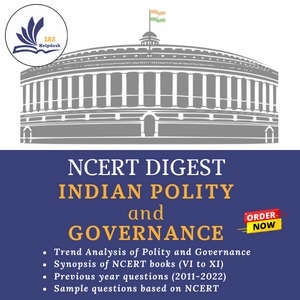Anti-cheating laws for competitive examinations
Description
Anti-cheating laws for competitive examinations
Description: Explore the varying provisions and concerns regarding anti-cheating laws in Indian states, addressing public examination integrity.
Introduction
In recent years, several states in India have taken measures to address the issue of cheating in public examinations, particularly those conducted for recruitment in public service commissions. This article explores anti-cheating laws across different states and highlights key concerns.
Example of Cheating Incidents in Uttarakhand
Several incidents of cheating and paper leaks have marred
Uttarakhand's public examinations. Notable cases include the panchayat
development officer exams in 2016, the Uttarakhand Subordinate Services
Selection Commission exams in 2021, and the Uttarakhand Public Service
Commission papers' leak in January 2023. These incidents have sparked public
outrage, leading to protests and unrest in Uttarakhand.
To combat cheating, Uttarakhand took swift action by promulgating an Ordinance on February 11, 2023, to prohibit and penalize the use of unfair means in public examinations. Subsequently, the Uttarakhand Assembly replaced the Ordinance with a Bill in March 2023. The state has also seen multiple candidates arrested and debarred for cheating in various public examinations, including posts like forest guard and secretariat guard.
Anti-Cheating Laws: Common Provisions
Anti-cheating laws in different states generally encompass
provisions that penalize the use of unfair means in public examinations. These
laws target examinees and other involved parties, such as those responsible for
conducting examinations. Key elements of these laws include:
·
Definition
of Unfair Means: Laws define unfair means to include unauthorized help and
the unauthorized use of written material by candidates.
·
Secrecy
of Examination Information: Those responsible for conducting examinations
are prohibited from disclosing any acquired information.
·
Expanding
Definitions: More recent laws, like those in Gujarat, Uttarakhand, and
Rajasthan, have expanded the definition of unfair means to include impersonation
and exam paper leaks.
·
Restrictions
on Electronic Aids: Some states, including Uttarakhand, Gujarat, Rajasthan,
Uttar Pradesh, Chhattisgarh, and Andhra Pradesh, forbid the use of electronic
aids.
·
Penalties:
Penalties for using unfair means vary, with Uttar Pradesh imposing a
maximum prison sentence of three months and Andhra Pradesh imposing up to seven
years.
Concerns and Issues to Consider
Concerns and Issues
to Consider
The anti-cheating Acts in Gujarat and Uttarakhand raise
concerns due to their stringent provisions:
·
Disproportionate
Sentences: In Uttarakhand, a fixed 3-year prison sentence is mandated for
examinees caught cheating, potentially leading to disproportionate penalties
for various offenses. Most other states impose a maximum imprisonment term of
three years, with Andhra Pradesh enforcing a minimum of three years. However,
these states allow judges to determine the actual imprisonment term within
specified limits based on the nature and impact of cheating.
·
Presumption
of Innocence: Uttarakhand's Act allows examinees to be barred from state
competitive examinations for two to five years upon the filing of charges,
rather than upon conviction. This may compromise the presumption of innocence
for accused candidates. In contrast, the laws in Gujarat and Rajasthan only debar
candidates upon conviction.
·
Scope of
Application: The scope of these laws varies among states. In Uttarakhand
and Rajasthan, they primarily apply to competitive examinations for recruitment
in government departments. In the remaining six states, they also encompass
examinations conducted by educational institutions for granting diplomas and
degrees, blurring the distinction between punishments for academic and
recruitment-related cheating.
Conclusion
The issue of cheating in public examinations is a growing concern in many Indian states. While anti-cheating laws aim to address this problem, the stringency of penalties, the timing of debarment, and the scope of application vary significantly. It is essential to strike a balance between deterring cheating and safeguarding the rights of examinees, making these laws a subject of ongoing debate and scrutiny.
How
to Prepare for IAS | FAQs on
UPSC | Up-to-date Current
Affairs | Latest Videos
& Updates | Article: White Phosphorus as a Weapon

